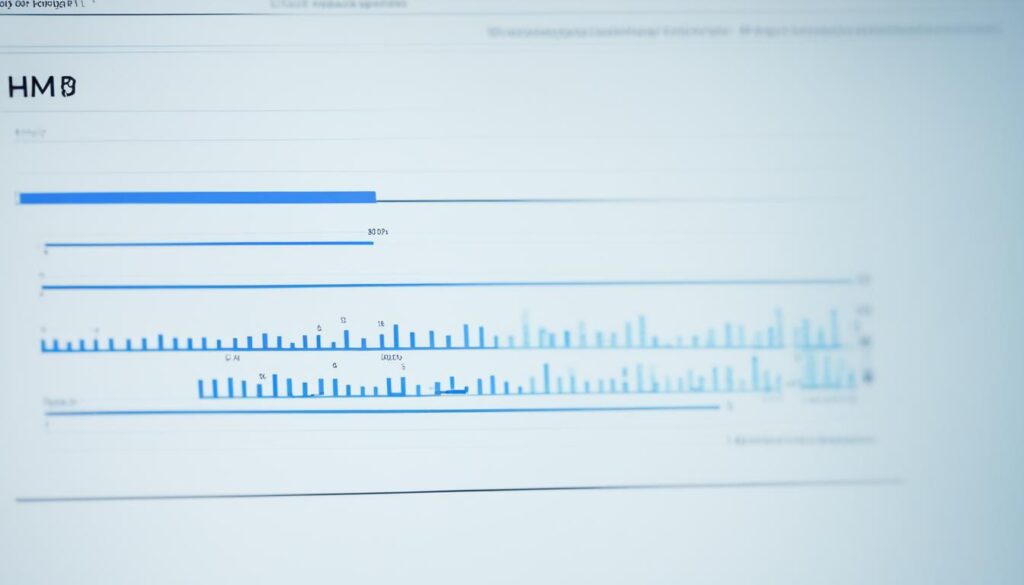Ever wondered why some websites load fast and work smoothly? It’s often because developers make their code better. Our html compiler is here to help. It uses advanced techniques to make your web projects run faster and work better.
With our tool, you can make your workflow more efficient. This means you can get more done in less time. Let’s dive into how our html compiler can help you improve your code.
Our compiler is a powerful tool for developers. It’s all about making your web projects run better. We’ll show you how it can boost your performance and make your websites more user-friendly.
Understanding the Basics of HTML Compilers
An html compiler is key in web development. It changes HTML code into a format that browsers can read. Developers need to understand how html compilers work to use them well in their projects. Unlike regular code editors, html compilers don’t just show code. They help turn that code into something that works.
How we use web development tools affects our coding skills. When we look at html compilers versus other tools, we see big differences. While text editors are for writing code, html compilers add features for testing and fixing code. This makes building websites easier.
To make things clear, let’s list the main points about html compilers in a table:
| Feature | HTML Compilers | Traditional Code Editors |
|---|---|---|
| Purpose | Convert HTML code to a browser-readable format | Provide a platform for writing code |
| Functionality | Includes testing and debugging capabilities | Primarily text editing features |
| User Experience | Streamlined workflow for developers | More suited for basic coding tasks |
The Importance of HTML Parsing in Web Development
HTML parsing is key to making websites work better and run smoothly. It turns HTML code into a format that browsers can understand. This step is vital for all web development tasks to start.
What is HTML Parsing?
HTML parsing breaks down HTML code into a tree-like structure called the Document Object Model (DOM). It finds elements, attributes, and their connections. This process fixes errors and makes the code ready for browsers.
HTML parsing is crucial. It affects how well web pages work and how easy they are to keep up with.
How Parsing Improves Performance
Good HTML parsing makes websites load faster and work better. It cuts down the time it takes for servers to handle web pages. This lets developers spend more time on making great designs.
| Factor | Impact of Efficient Parsing |
|---|---|
| Loading Speed | Faster load times lead to improved user satisfaction. |
| Resource Usage | Decreased resource consumption allows for greater scalability. |
| Code Maintenance | Easier debugging and maintenance enhance team productivity. |
| User Experience | Seamless interactions result in lower bounce rates. |
Getting Started with Our HTML Compiler

Starting a new development tool can feel overwhelming. Our beginner’s guide makes setting up our HTML compiler easy. It helps you begin your projects with confidence. First, check if your system can run the compiler well.
First, download the HTML compiler from our website. Installing it is easy, but check for updates to get the newest features. Here are the steps to start:
- Download the installer from our site.
- Run the setup and pick where you want it installed.
- Finish the installation and open the HTML compiler to get to know it.
For the best experience, set up the compiler how you like. Choose your coding style and turn on automatic updates. These settings make working with the compiler smoother.
After setting it up, explore what our HTML compiler can do. We aim to help developers write better code. For more tips on improving tech gear, check out this page. It shows how upgrades can make your work better.
We aim to make starting with us easy so you can quickly get back to your projects. Get ready to improve your coding with our HTML compiler.
Key Features of Our HTML Compiler
We’re going to talk about what makes our HTML compiler stand out. It’s all about making things easier for developers. Our special way of handling HTML makes code work better and faster.
Enhanced HTML Tokenization
Our compiler focuses on making HTML easier to understand. It breaks down complex HTML into simple parts. This makes the code clear and easy to work with.
Developers love how easy it is to update and maintain their code. They see how everything fits together smoothly.
Efficient HTML Tree Construction
Building the HTML tree quickly is another big plus of our compiler. It makes sure the HTML structure works well for fast web pages. This means websites load faster and work better.
| Feature | Description | Benefits |
|---|---|---|
| Enhanced HTML Tokenization | Breaks down HTML into manageable tokens for clear parsing. | Improved code clarity and efficiency in updates. |
| Efficient HTML Tree Construction | Optimizes HTML structure representation for faster rendering. | Quicker navigation and enhanced application performance. |
Streamlining Your Code with HTML Compilation

In the world of web development, tools that help improve development efficiency are key. Our HTML compiler is a big help in making streamline code easier. It makes reading, updating, and keeping code simple and efficient.
Writing HTML well helps keep code organized and easy to update. Using semantic HTML and cutting down on inline styles makes code cleaner. Our compiler checks the code and gives feedback to help developers follow best practices.
Here are some main benefits of using our HTML compiler:
- Elimination of redundant elements that complicate code structure
- Enhanced clarity through standardized formatting, making code easier to read
- Facilitation of quick identification of errors, which improves overall efficiency
- Support for adhering to modern web standards, ensuring compatibility across browsers
Using these practices makes coding more efficient and consistent. Our HTML compiler is a must-have for developers wanting to improve their coding.
| Feature | Benefit |
|---|---|
| Redundancy Reduction | Clearer code, easier to maintain |
| Standardized Formatting | Improved readability, quicker comprehension |
| Error Detection | Fewer issues leading to faster development cycles |
| Web Standards Compliance | Better cross-browser compatibility |
Understanding the Document Object Model (DOM)
The Document Object Model (DOM) connects our HTML structure with the browser. It defines the logical structure of documents. This lets developers work with the content, structure, and styles of web pages.
It turns the elements of a webpage into a tree of objects. This makes it possible to change web content dynamically with scripting languages like JavaScript.
In web architecture, the DOM is key for showing and updating HTML documents on the fly. When the DOM changes, browsers can quickly update the affected parts of the page. This doesn’t need a full page refresh.
This makes web pages more interactive and responsive. It improves the user experience by making web apps more dynamic.
Our HTML compiler makes managing the DOM better. It improves how the document object model works with HTML. This leads to faster page loading and better use of resources.
This means a smoother experience for both developers and users.
Using the DOM’s full potential lets us make websites that react well to user actions. Knowing how the DOM works is key for improving web development skills.
How Our HTML Compiler Aids in Web Rendering

The rendering process is key in web development, affecting how content looks to users. Our HTML compiler is vital in making this process better, ensuring it’s smooth and quick. By looking at the steps in rendering, we see how each part helps make web pages work well.
Web Rendering Explained
Web rendering turns HTML, CSS, and JavaScript into something users can see. This complex rendering process starts with reading HTML and CSS, then making a render tree, doing layout calculations, and finally, painting pixels on the screen.
Our HTML compiler helps at every step of the rendering pipeline. It makes parsing and tokenizing HTML faster, which speeds up making the render tree. This means content loads quicker, making websites more user-friendly.
Having good management of our solutions is crucial. It makes sure our work meets our goals. For more on setting up a strong management plan, check out this resource.
Our HTML compiler and web rendering work closely together. By optimizing during rendering, we help developers make strong apps that work well on all devices.
An In-Depth Look at HTML Reflow
HTML reflow is when a browser changes a webpage’s layout. This can happen for many reasons, like style changes or when the screen size changes. It’s important to know how it works to make websites run smoothly.
When a layout changes, many elements might need to move or resize. This can slow down a website, especially on older devices. Our HTML compiler helps by reducing how often and how much the layout changes, making websites faster.
Here are some ways to handle html reflow well:
- Batching DOM Updates: Grouping changes together means fewer reflows.
- Using CSS Transitions: These make changes look smoother without full reflows.
- Avoiding Synchronous Layout Queries: Waiting to read layout properties can cause more reflows.
Our HTML compiler uses these ideas to make layout changes smooth. By controlling how often and how much the layout changes, we make websites better for both developers and users.
| Layout Adjustment Method | Performance Impact |
|---|---|
| Batched DOM Updates | Reduces reflow frequency |
| CSS Transitions | Allows for smoother animations |
| Avoiding Synchronous Layout Queries | Prevents unnecessary recalculations |
Comparison of Browser Engines and HTML Compilers

When we talk about web development tools, it’s key to know the differences between browser engines and HTML compilers. They each play unique roles in turning HTML into working web pages. Their ways of working and how well they do it differ. This comparison can help us improve our coding skills.
Browser engines, like Blink and Gecko, work on making web pages load fast. They take HTML, CSS, and JavaScript and put together what users see. HTML compilers, on the other hand, make HTML easier to parse and compile. This makes the code faster and more efficient.
| Feature | Browser Engines | HTML Compilers |
|---|---|---|
| Rendering Speed | Variable; depends on multiple factors | Optimized for fast compilation |
| Parsing Efficiency | Directly tied to rendering | Improved tokenization and tree construction |
| Development Focus | User experience and interface | Code optimization and maintainability |
Knowing the differences between browser engines and HTML compilers helps us make better choices in our web projects. By using the best of both, we can improve our development strategies. This leads to more efficient coding.
Ensuring Compliance with Web Standards
In today’s fast-changing digital world, following web standards is key for developers. Our HTML compiler is a big help in making sure we meet these standards. This not only makes web applications better but also makes them work well on different platforms. It’s important to know why sticking to these standards is crucial for web projects.
Importance of Following Web Standards
Following web standards makes the web better for everyone. Not following them can cause problems like different browsers showing things differently. This makes it hard for users to use the web smoothly. Our HTML compiler helps developers use the best coding methods to avoid these issues.
By focusing on web standards, we make sure our coding leads to:
- Increased Accessibility: Design that is usable by people with various disabilities.
- Interoperability: Consistent performance across different browsers and devices.
- Future-proofing: Adapting to new technologies and updates becomes easier.
Embracing web standards makes our work better and the internet more accessible for everyone.
| Benefit | Description |
|---|---|
| Accessibility | Ensures all users, including those with disabilities, can access web content. |
| Interoperability | Paves the way for uniform performance across various web browsers and devices. |
| Efficiency | Streamlines maintenance processes by adhering to established coding guidelines. |
| Future-proofing | Facilitates easier adaptation to changing web technologies and standards. |
Markup Language Processing Enhanced by Our HTML Compiler
Our HTML compiler makes markup language processing better for developers. It helps them create top-notch web apps. It makes HTML processing more efficient, following today’s coding standards.
Our compiler is great at understanding and changing markup languages. This means fewer mistakes. It leads to cleaner code and better web performance. Developers get to work faster without losing quality.
Let’s look at how our HTML compiler changes the game in markup language processing. We’ll compare old ways with our new methods:
| Feature | Traditional Processing | Our HTML Compiler |
|---|---|---|
| Error Detection | Limited | Advanced |
| Processing Speed | Moderate | High |
| Compliance with Coding Standards | Inconsistent | Consistent |
| Code Clarity | Moderate | Exceptional |
Our HTML compiler boosts efficiency in processing markup languages. This means developers stick to coding standards better. The result is code that’s easier to maintain and grow. This leads to better web apps and a better user experience.
Benefits of Using Our HTML Compiler in Your Projects
Using our HTML compiler in your projects brings many benefits. It boosts code quality and speeds up development. This tool makes processes smoother, helping us meet deadlines and set high standards.
Improved Code Quality
Our HTML compiler stands out for making code better. It ensures clean, easy-to-maintain code through better parsing and structure. This means fewer errors and easier teamwork.
It keeps coding standards consistent, ensuring top-quality results.
Faster Development Cycles
In web development, quick cycles are key. Our compiler speeds things up by automating tasks and optimizing processes. This lets teams work faster, respond quicker to clients, and deliver projects sooner.
| Feature | Benefit to Code Quality | Benefit to Development Speed |
|---|---|---|
| Enhanced Parsing | Ensures accuracy and reduces errors | Speeds up the coding process |
| Optimized Structure | Promotes maintainability | Facilitates faster updates and revisions |
| Automated Tasks | Reduces manual effort and oversight | Allows developers to focus on critical aspects |
| Consistent Output | Enhances team collaboration | Improves project management efficiency |
Utilizing HTML Tokenization for Better Efficiency
HTML tokenization is key to making coding more efficient. It breaks HTML documents into smaller parts, making editing easier for developers. This approach helps us spot patterns, cut down on repetition, and keep our work organized.
Adding html tokenization to our development plans can make things faster. We can use several effective methods:
- Token-based structures make parsing code and finding elements quicker.
- Using libraries and tools for html tokenization keeps our work smooth.
- Refactoring tokenized code often improves its quality.
These methods not only boost our team’s efficiency but also create a space for innovation and quality work. Choosing html tokenization is a smart move that benefits our productivity and keeps code easy to maintain over time.
Conclusion
Our HTML compiler is a key tool for today’s web developers. It makes coding easier and speeds up web development. With its advanced features, it boosts code quality and quickens the development process.
Using our HTML compiler gives you an edge in your projects. It ensures smooth workflows and efficient coding. We urge you to use this innovative tool to improve your projects. This leads to better performance and happier users.
Choosing our HTML compiler is a smart move for your coding future. Let’s work together to use the best web development practices and tools. This will lead to success.
FAQ
What is an HTML compiler and how does it work?
An HTML compiler turns HTML code into a format that web browsers can use. It goes through stages like parsing, tokenizing, and building a tree. This makes the final output ready for the web and improves performance.
Why is HTML parsing essential for web development?
HTML parsing is key because it changes raw HTML into a structure that browsers can read. This affects how fast websites load and how well users experience them. Our compiler makes this process faster and more efficient.
How does your HTML compiler improve web rendering?
Our compiler boosts web rendering by optimizing the process. It speeds up and makes more accurate the way web pages are shown. This means websites load faster and work better, making users happier.
What features set your HTML compiler apart from others?
Our compiler is unique because it does a better job at breaking down HTML and building the structure. This makes the code easier to work with and more efficient. It also follows web standards closely, making it more reliable.
Can your HTML compiler help in minimizing HTML reflow?
Yes, our compiler is made to cut down on HTML reflows. It organizes the code smartly and adjusts layouts. This helps developers keep their websites fast and smooth, giving users a better experience.
How does your HTML compiler assist with compliance to web standards?
We focus on web standards in our compiler to make sure the code follows best practices. This makes websites work better across different devices and helps everyone access them easily. It’s all about making web pages that work for everyone.
What are the benefits of using your HTML compiler in my web projects?
Using our compiler in your projects means better code, quicker work, and smoother workflows. It optimizes how code is handled and improves the structure. This lets developers create top-notch work fast and efficiently.
How can I set up your HTML compiler?
Setting up our compiler is easy. We offer a guide for beginners that covers installation and setup. It’s designed to be easy for developers at any level to use our compiler without trouble.


